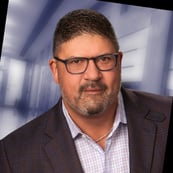SOURCE: THEFLORIDA.NEWS
Greg Pesik is a senior executive with 20+ years of delivering market expansion and profit optimization on both large and small platforms. A trailblazer who has been at the forefront of predictive revenue optimization, enterprise SaaS software development and has led complex digital transformation projects for global organizations.

As a first-time CEO of a company that provides group reservations and optimization technology solutions to the global travel industry, Greg stepped into his role knowing that unless he was able to deliver immediate results, the outcomes were likely bankruptcy or a fire sale. He designed a turnaround strategy, but he had to overcome skepticism in and out of the building, hire new staff and inspire internal team members while overcoming investor fatigue. The plan required rapid organic growth, expansion into a lucrative new sector, and conversion to a SaaS pricing model.
More details about Greg and his experience as an entrepreneur can be found below:
What’s the story behind PROVision Partners?
PROVision Partners started as an idea over lunch at an industry conference. My co-founder and I were active independent hospitality consultants, both with long careers in travel technology and consulting companies, global hotel brands, and start-ups. We saw an opportunity to collaborate and build a firm by attracting other independents and creating a brand. PROVision would not merely be a confederation of consultants, but a company with a unified market vision and focused practiced offerings.
What was the most difficult part of your experience in the early beginnings?
To build the foundation of PROVision, we had to identify other independent hospitality consultants and small firms that were already successful in their own right. We had to convince them that effectively merging their businesses in PROVision would lead to even greater success. Creating the “North Star” was vital but ensuring our go-to-market services were aligned and singularly branded required immense collaboration. Moreover, we now all operated under a single P&L; we would live and die by our shared efforts.
What are you most proud of regarding your business?
To date, we’ve combined four independent consulting LLCs into PROVision and are entering into due diligence for another combination. Now, I will say that the pandemic has certainly tempered our growth. And as everyone is aware, the travel and hospitality market has been particularly hard hit. But we have been able to leverage our experience in managing businesses through other major crises into advisory services that have resonated with the market. That focus has allowed PROVision to remain viable through the pandemic and grow its client base.
What is your vision for the future of PROVision Partners?
We will remain highly focused on providing the most practical, real-world guidance related to hospitality and travel technology issues facing our clients. That means our future depends on attracting the best thinkers in the space and the thinkers who are best able to translate the complexity of the space into actionable recommendations. Because that is the only way we create durable growth and differentiate ourselves from the consulting “noise.” That’s our mission.
What’s your advice for the businesses that are trying to adapt to this economic climate?
The pandemic created the most significant economic, and more importantly, the most devasting human crisis that most businesses have ever faced. We’ve had others, like 9/11, the great recession of the late 2000s, and even other health emergencies such as MERS and SARS. The cost to our society of the current pandemic is still unknown, even with a vaccine on the horizon.
There’s no one playbook, even with the benefit of hindsight. Still, some principles can create long-term resiliency, perhaps even a shield against a long-term business loss. First, it’s critical to not just rethink the value of planning horizons, but the constructs they enforce, such as annual bonuses or quotas, etc. I’d argue that a long-term view is necessary but put 80% of your focus into the next 90 days. Second, be completely transparent. Over-communicate. A downturn exposes the worst in an insular leader. Next, get very focused on the business pieces that still have life, but don’t dismiss ideas that initially seem like “that will never work.” It’s remarkable how many businesses pivoted (wine-based hand sanitizers in France, hotels converted to virtual campuses, make-at-home “menu kits” from restaurants). Finally, step back and commit to your personal priorities – take stock of what is essential for you to look back and say you did the right things.
What books do you have on your nightstand?
Annie Leibovitz, “A Photographer’s Life”, “Your Next Five Moves”, Patrick Bet-David and Nelson DeMille, “A Quiet End”.
- Share:
- Subscribe Here
